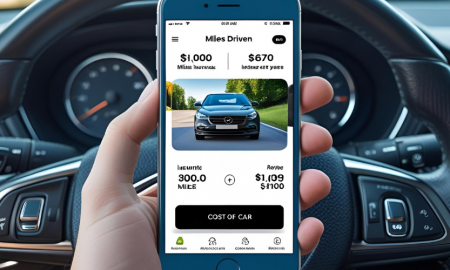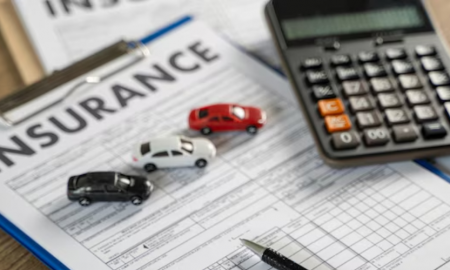
Everything You Need to Know About A Cleaning Driving Record

Have you ever wondered, “What is a clean driving record?” Maybe you have heard the term tossed around by your insurance company or seen it mentioned in driving job descriptions. But what does it actually mean, and why should you care?
A clean driving record can have significant perks, from securing lower insurance rates to unlocking job opportunities.
What Is a Clean Driving Record?
A clean driving record, in simple terms, is a record free from traffic violations, accidents, or points. It is like your personal report card for how well you have navigated the roads over time. Insurance companies, employers, and even landlords may look at this record to gauge your reliability and responsibility.

Hazar / Pexels / Essentially, a clean driving record is your driving history that is free from traffic violations, accidents, and points.
Think of it as your driving résumé: The better it looks, the more benefits you’ll likely receive.
How Does a Clean Driving Record Work?
Each state keeps a record of every driver’s driving history. This record details all your traffic offenses, accidents, and any points accrued for moving violations like speeding. A clean driving record implies that over a certain period (often three to five years), you have managed to stay out of trouble.
No tickets, no at-fault accidents, and certainly no DUI convictions. Having a clean record reflects positively on you and builds trust with insurers and potential employers.
How Can You Get a Clean Driving Record?
The million-dollar question: How can you achieve that squeaky-clean driving record? Here are some practical steps:
- Drive Safely and Responsibly: The most straightforward way is to avoid traffic violations altogether. Follow speed limits, signal your turns, and practice defensive driving.
- Attend Traffic School: In some states, attending a defensive driving course can reduce points or dismiss a traffic ticket. It is worth checking if this option is available to you.

Mike / Pexels / To get a clean driving record, check your driving record regularly to spot any errors or infractions you may not remember.
- Apply for Expungement: Some violations can be removed from your record through expungement if you meet specific conditions.
- Stay Consistent: Over time, minor infractions may naturally fall off your record, leaving a clean slate if you continue to drive carefully.
How Does a Clean Driving Record Impact Your Insurance?
A clean driving record plays a massive role in determining your auto insurance premiums. Insurers use it as a key factor when calculating their rates, and offering discounts to safe drivers. Here is how:
- Lower Premiums: With fewer risks associated with your driving behavior, insurers are more likely to offer lower premiums. It is their way of rewarding responsible drivers.
- Accident Forgiveness: Some companies offer accident forgiveness to drivers with a previously clean record. This means your first at-fault accident might not increase your premiums.

Olly / Pexels / Having a clean driving record will enhance your eligibility for discounts.
Many insurers offer specific discounts for maintaining a clean record over time, such as safe driver discounts. However, some insurance companies provide additional perks, like priority claims processing, to customers with a clean record.
How to Check Your Driving Record?
Now that you know what is a clean driving record, how do you check it? How can you confirm if your driving record is clean or not? Most states allow you to access your record online, or you can request it in person at the DMV. Here is a step-by-step guide:
- Visit the DMV Website: Look up the official DMV website for your state. They often provide instructions on how to obtain your record.
- Fill Out a Request Form: Some states require you to fill out a request form with your driver’s license number, personal information, and payment details.
- Submit Payment: There is usually a small fee to access your driving record, often payable by credit card or money order.
- Wait for Your Record: You will typically receive your record via email, mail, or direct download from the DMV site.
More inDriving
-
`
Gen Z Craves Career Guidance, But Their Parents Are Struggling Too
Gen Z is stepping into the future with curiosity and ambition—but they’re not doing it alone. A growing number of teens...
July 25, 2025 -
`
Do Car Insurance Companies Offer Pay-As-You-Go Plans?
Car insurance premiums often feel unfair to people who rarely drive. Yet, most traditional auto policies still charge a fixed monthly...
July 17, 2025 -
`
Why the Koenigsegg Sadair Spear Is the Ultimate Hypercar Beast
Koenigsegg has revealed a new beast—the Sadair’s Spear. Tuning its focus on raw performance and brutal speed, this hypercar marks the...
July 11, 2025 -
`
Which States Have the Safest—and Riskiest—Drivers in America?
Driving safety isn’t just about skill. It’s also about location. A recent nationwide report shines a spotlight on where drivers are...
July 4, 2025 -
`
How to Save on Tesla Car Insurance Without Compromising Coverage
Owning a Tesla often brings savings on fuel and a futuristic driving experience, but the conversation changes quickly when it comes...
June 26, 2025 -
`
10 Weird Cars That Turned Heads and Won Hearts
Some cars turn heads with speed, others with luxury—but a rare few grab your attention simply by being delightfully strange. From...
June 20, 2025 -
`
Next-Gen Jeep Cherokee Expected to Arrive by Late 2025
After a break of two years, Jeep is prepared to relaunch the Cherokee brand. The automaker confirmed the return with fresh...
June 12, 2025 -
`
9 Tips to Make Night Driving Safer and Less Frightening
Once the sun dips below the horizon, driving becomes more than just a commute—it becomes a challenge. Limited visibility, harsh glares,...
June 6, 2025 -
`
The Impact of AI on Middle Management and Leadership Dynamics
Artificial intelligence is reshaping modern management practices. While intended to streamline tasks like approving time off or managing internal applications, its...
May 31, 2025















You must be logged in to post a comment Login